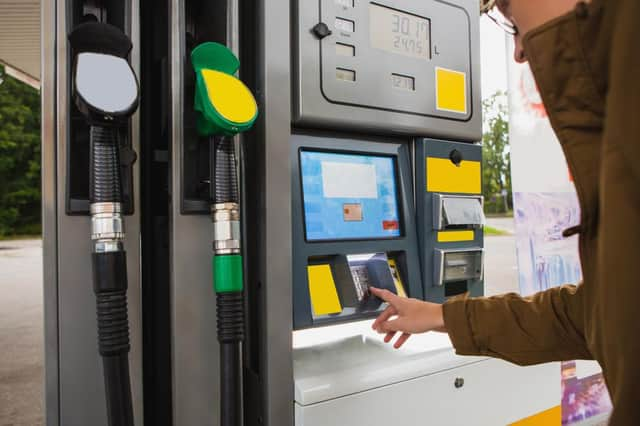How will the oil price crash affect petrol prices? The impact of plummeting crude prices on fuel costs


Recent days have seen some of the most dramatic collapses in oil prices for decades.
The coronavirus pandemic has seen demand for oil plummet as manufacturing is scaled back and travel restrictions affect the need for fuel.
Advertisement
Hide AdAdvertisement
Hide AdIn the US, the wholesale price in some places actually fell into negative figures, leaving suppliers paying their customers to take delivery of fuel as they struggled for capacity.
The situation affecting the UK is slightly different but the price of Brent crude - which influences our petrol and diesel prices - has plummeted to an 21-year-low of less than $16 per barrel.
What does the oil price collapse mean for petrol prices?
With petrol prices linked to the wholesale cost of oil it makes sense that crashing prices on the markets should translate to cheaper fuel at the pumps.
Recent weeks have already seen significant reductions by large retailers, with several supermarkets cutting as much as 12p per litre at their forecourts as wholesale prices dropped.
Fuel is now at its lowest average cost since May 2016 with the average cost of a litre of unleaded at around £1.10 and diesel at £1.15.
However, fuel price campaigners insist that there is still room for further reductions and petrol should be cut to less than £1 per litre to reflect the latest falls. The AA also estimates that, taking into account tax and duty, a price of around £1 a litre would reflect the current wholesale price.
However, it is unlikely that retailers will move to drop prices this far. For a start, just over 10 per cent of fuel price is based on the price of oil, the rest reflects fuel duty and VAT imposed by the Government plus retailers’ profits.
Customer demand for fuel has plummeted as a result of lockdown - the AA estimates by around 40 per cent - meaning filling stations have seen profits drop and are holding prices up to compensate.
Advertisement
Hide AdAdvertisement
Hide AdThe RAC has also warned that smaller independent retailers could go out of business if they cut their prices any further.
RAC fuel spokesman Simon Williams said: “In theory petrol prices could fall below £1 per litre if the lower wholesale costs were reflected at the pumps – but at the same time people are driving very few miles so they’re selling vastly lower quantities of petrol and diesel at the moment. This means many will be at pains to trim their prices any further.”
Finally, retailers have long been accused of taking a “rocket and feather” approach to fuel prices - ramping them up as soon as wholesale prices increase but taking longer to drop them when wholesale costs fall. So, even if they do decide to lower forecourt prices further, it could be weeks before drivers see the benefit.